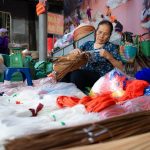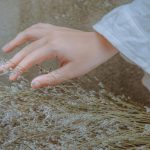Did you know that up to 20% of people suffer from sensitive skin or allergic reactions triggered by textiles? If you’re among them, choosing the right fabric can make a significant difference in comfort and skin health. Lyocell fabric has gained attention for its potential hypoallergenic properties, but is it truly suitable for those with skin conditions? Understanding how it compares to other materials might change the way you select your next garment or bedding.
Table of Contents
Key Takeaways
- Lyocell fabric is hypoallergenic, reducing skin irritation and allergic reactions for sensitive and atopic skin conditions.
- Its smooth fibers minimize friction, preventing redness and itching often caused by rougher fabrics.
- High moisture-wicking and breathability keep skin dry, discouraging bacteria and dust mites that trigger allergies.
- Lyocell is produced without harsh chemicals, ensuring minimal chemical residues that could irritate skin.
- Scientific studies confirm Lyocell’s superior skin compatibility and reduced irritation compared to cotton and synthetics.
Hypoallergenic Qualities of Lyocell Fabric
Although many fabrics can irritate sensitive skin, Lyocell stands out for its hypoallergenic qualities. You’ll appreciate Lyocell’s natural, smooth fibers that reduce friction and minimize skin irritation.
Its lyocell properties include high moisture absorption and breathability, which help maintain a dry environment, discouraging the growth of bacteria and dust mites—common triggers for allergic reactions.
Because Lyocell is made through an eco-friendly process using wood pulp, it avoids harsh chemicals often responsible for skin irritation in other fabrics.
When you wear Lyocell, the fabric’s softness and ability to wick moisture away keep your skin comfortable and less prone to itching or redness.
Choosing Lyocell means opting for a fabric designed to respect sensitive skin without compromising on comfort.
Benefits of Lyocell for Sensitive and Atopic Skin
Because Lyocell’s fibers naturally wick moisture and stay breathable, you’ll find it especially gentle on sensitive and atopic skin. It helps reduce skin irritation by keeping your skin dry and comfortable, preventing excess moisture buildup that can trigger flare-ups.
Thanks to its excellent moisture retention balance, Lyocell doesn’t trap sweat or allergens, which often worsen sensitive skin conditions. You’ll appreciate how soft and smooth the fabric feels, minimizing friction and irritation during wear.
Plus, its hypoallergenic nature means it resists common irritants like dust mites and bacteria, further protecting your skin. Choosing Lyocell clothing or bedding can support your skin’s health by maintaining a clean, breathable environment that soothes sensitive and atopic skin rather than aggravating it.
Comparing Lyocell With Other Fabrics for Skin Health
When you choose fabrics for your skin, understanding how Lyocell stacks up against others can help you make better decisions for your skin health.
Compared to cotton, Lyocell offers superior moisture-wicking and breathability, which reduces irritation and keeps your skin dry. While cotton is soft, it can retain moisture, sometimes aggravating sensitive skin.
On the other hand, synthetic fibers often trap heat and moisture, increasing the risk of allergic reactions or discomfort.
Lyocell’s smooth surface also minimizes friction, making it ideal if you suffer from atopic or sensitive skin conditions.
In the lyocell vs cotton debate, Lyocell tends to be gentler and less likely to cause irritation.
Environmental Impact and Sustainability of Lyocell
Choosing Lyocell for your skin also means making a choice that benefits the environment. This fabric is derived from sustainably sourced wood pulp, ensuring forests are preserved rather than depleted.
Its production process uses a closed-loop system, which recycles water and solvents, minimizing waste and emissions. You’ll appreciate that Lyocell’s eco friendly production reduces harmful chemicals compared to conventional fabrics, making it a greener option.
Here’s why Lyocell stands out environmentally:
- Uses sustainable sourcing to protect natural resources
- Employs closed-loop, eco friendly production techniques
- Biodegrades naturally, reducing landfill waste
- Requires less water and energy than cotton
Scientific Studies Supporting Lyocell’s Skin Compatibility
Although many fabrics claim to be gentle on the skin, scientific studies have confirmed that Lyocell truly stands out for its hypoallergenic properties. Thanks to its eco-friendly lyocell production process, the fabric is free from harsh chemicals that can irritate sensitive skin. Research also shows Lyocell supports a balanced skin microbiome, reducing inflammation and allergic reactions. Below is a summary of key studies highlighting Lyocell’s skin compatibility:
| Study | Focus Area | Key Findings |
|---|---|---|
| 1 | Skin irritation | Minimal irritation vs. cotton |
| 2 | Allergic response | Reduced allergic reactions |
| 3 | Microbiome balance | Supports healthy skin flora |
| 4 | Moisture management | Better for dry, sensitive skin |
| 5 | Chemical residue | Virtually free of irritants |
Frequently Asked Questions
How Do I Care for Lyocell Fabric to Maintain Its Hypoallergenic Properties?
You’ll love treating lyocell like royalty—gentle washing techniques, cold water, and mild detergent. Skip harsh stain removal methods; they’ll ruin its feel. Ironically, less aggressive care keeps your fabric’s softness and hypoallergenic charm intact!
Can Lyocell Fabric Be Blended With Other Materials Without Losing Skin Benefits?
You can blend Lyocell with other fabrics, but keep in mind that the fabric benefits might vary. Choosing natural fibers in Lyocell blends helps maintain breathability and softness, preserving its skin-friendly qualities effectively.
Is Lyocell Suitable for Baby Clothing and Sensitive Infant Skin?
When you want the gentlest touch for your little one, lyocell fabric offers excellent fabric safety. It’s soft, breathable, and kind to baby skin, making it a smart choice for sensitive infant clothing needs.
How Does Lyocell Fabric Perform in Extreme Weather Conditions?
You’ll find lyocell fabric excels in extreme weather, thanks to its temperature regulation and moisture-wicking properties. It keeps you cool when it’s hot and warm when it’s cold by efficiently managing moisture and airflow.
Are There Any Known Allergies Specifically Caused by Lyocell Fabric?
Like a gentle breeze through a meadow, lyocell rarely triggers lyocell allergies or lyocell sensitivities. You won’t find many reports of reactions, so you can wear it comfortably without worrying about irritation.
- Where to Buy Tetron Fabric: Top Retailers and Online Stores - June 17, 2025
- Tetron Fabric Suit: Style and Comfort Combined - June 17, 2025
- Tetron Fabric for Bags: Durability and Design Tips - June 17, 2025







